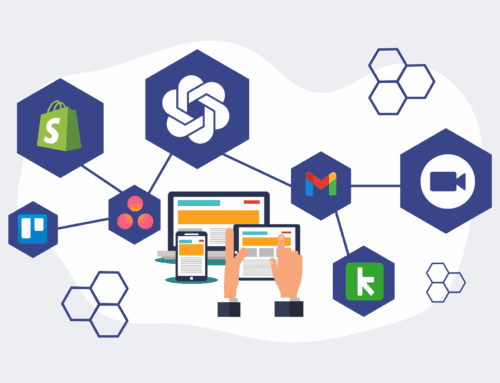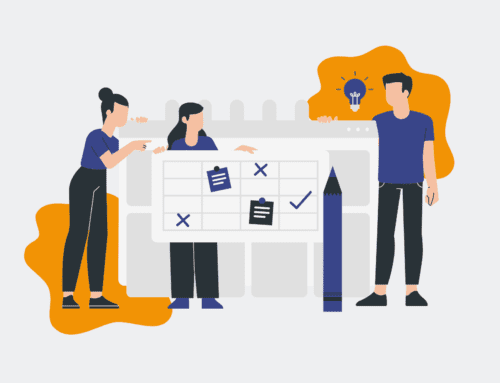How to Train Your Talent Acquisition Team on Essential Generative AI Skills in 4 Weeks
In today’s rapidly evolving talent landscape, Generative AI is no longer a futuristic concept but a vital tool for competitive advantage. To stay ahead, talent acquisition (TA) teams must swiftly integrate AI skills into their daily operations. This guide provides a practical, 4-week roadmap for 4Spot Consulting clients and business leaders to equip their TA teams with foundational Generative AI capabilities, enhancing efficiency, candidate experience, and strategic impact. Prepare to transform your recruitment process and elevate your team’s expertise.
Week 1: Foundations – Understanding Generative AI & Its Core Applications
Kickstart your team’s AI journey by establishing a strong theoretical and practical foundation. Begin with introductory sessions explaining what Generative AI is, its underlying principles, and its specific relevance to talent acquisition. Cover ethical considerations, data privacy, and the importance of human oversight. Focus on practical applications such as drafting job descriptions, creating initial candidate outreach messages, and summarizing long resumes. Provide hands-on exercises using accessible tools like ChatGPT or Google Bard, encouraging experimentation with different prompts and observing the quality and relevance of the outputs. This week is about demystifying AI and building initial confidence through guided exploration.
Week 2: Advanced Prompt Engineering & Tool Integration
Building on the basics, Week 2 delves into the art and science of effective prompt engineering. Train your team to craft precise, detailed, and context-rich prompts that yield superior Generative AI outputs for TA tasks. Introduce concepts like role-playing, constraints, examples, and iterative refinement. Explore how to use AI for persona development, crafting personalized interview questions, or generating follow-up communications. Begin integrating Generative AI tools directly into existing workflows – for instance, using AI to refine boolean search strings or to summarize interview notes for post-interview debriefs. The goal is to move beyond basic interaction to strategic, results-driven AI utilization.
Week 3: AI-Powered Candidate Sourcing, Engagement & Screening
This week focuses on leveraging Generative AI to revolutionize the candidate journey from initial sourcing to early-stage screening. Train your team on using AI to identify passive candidates through enhanced market research, generate highly personalized and compelling outreach sequences, and even create dynamic candidate experience touchpoints. Explore how AI can analyze large volumes of applicant data to flag top candidates based on defined criteria, writing concise summaries of qualifications for hiring managers. Emphasize that AI acts as an accelerator, freeing up recruiters for high-value interactions, rather than a replacement for human judgment. Practical exercises should involve real-world scenarios, fine-tuning AI outputs for diverse roles.
Week 4: Strategic Impact, Ethical AI & Continuous Improvement
The final week shifts focus to the strategic implications and ethical deployment of Generative AI within TA. Discuss how AI insights can inform workforce planning, talent market analysis, and diversity initiatives. Reinforce the ethical use of AI, including bias detection and mitigation strategies, ensuring fairness and transparency in all AI-driven processes. Establish a framework for continuous learning, encouraging team members to share new discoveries, prompt best practices, and innovative applications. Set up regular review sessions to discuss AI’s impact on key metrics like time-to-hire, quality-of-hire, and candidate satisfaction, adjusting strategies as needed. This week solidifies AI as an ongoing strategic asset.
Ongoing: Measure, Adapt & Scale for Long-Term Success
Training doesn’t end after four weeks; it’s a launchpad. Consistently monitor the performance metrics influenced by AI integration, such as efficiency gains, candidate engagement rates, and recruiter productivity. Gather feedback from the team on tool effectiveness and identify areas for further training or process optimization. Encourage the creation of an internal knowledge base for AI prompts and best practices. As your team becomes more proficient, explore more advanced AI applications, like predictive analytics for retention or AI-driven skill gap analysis. With 4Spot Consulting’s guidance, this continuous adaptation ensures your TA team remains at the forefront of innovation, consistently delivering exceptional talent outcomes.
If you would like to read more, we recommend this article: Mastering Generative AI for Transformative Talent Acquisition









